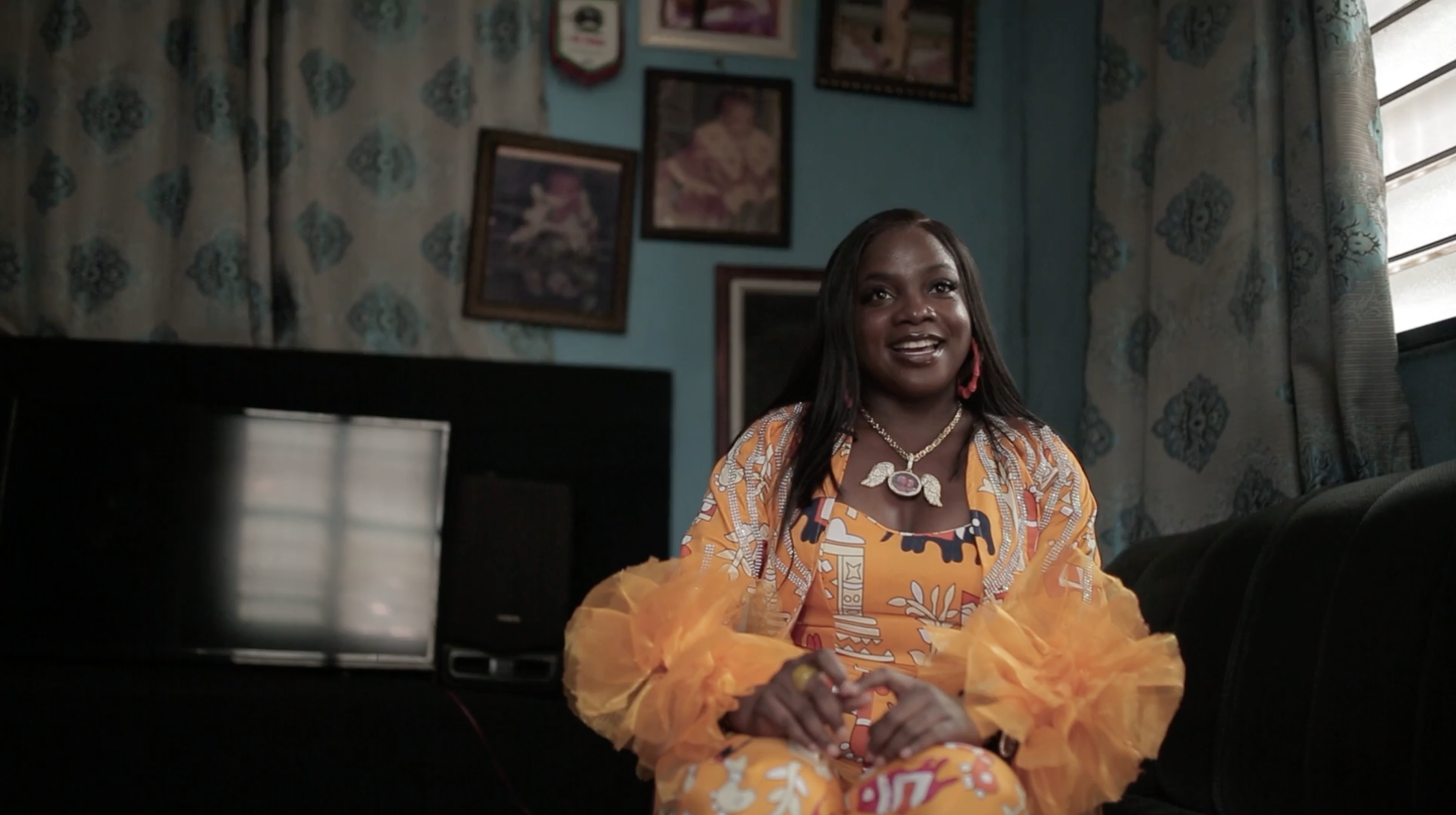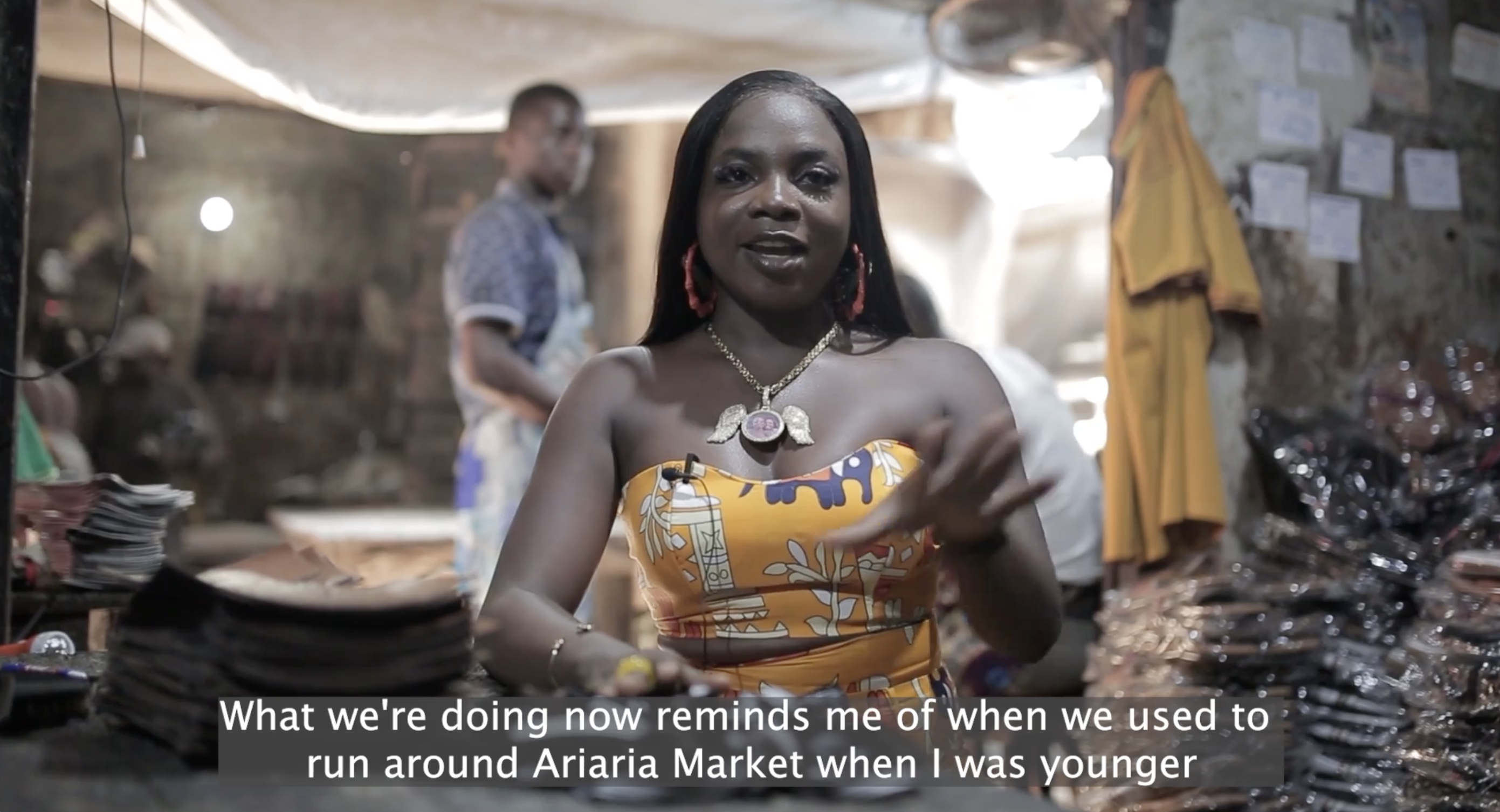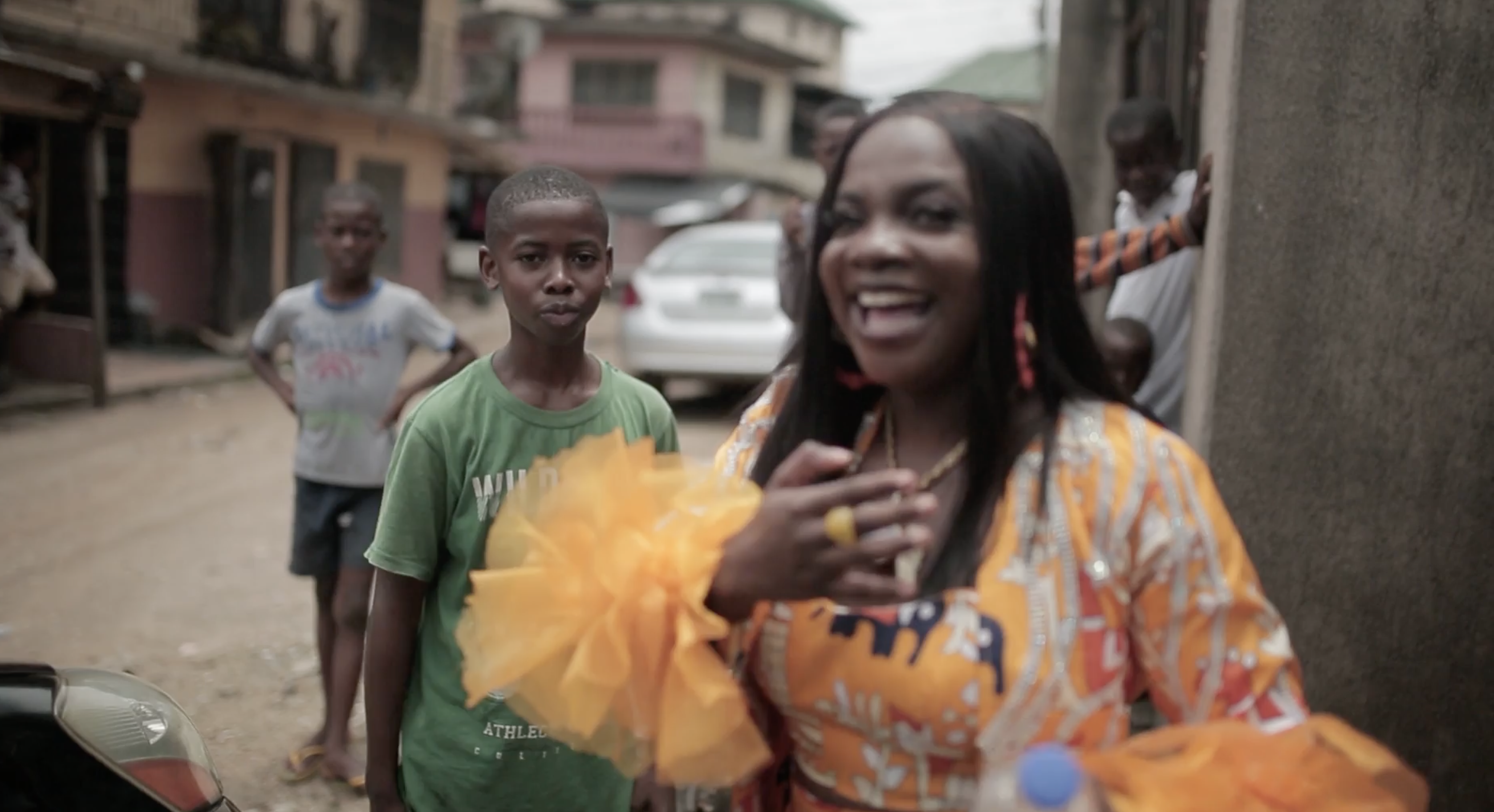Representing the Place that You Come From: Ugochi Anosike on her early years, Igbo music, and the local footwear industry in Aba
By Tochukwu Precious Eze
- 1st December 2023

All photos © NZUKO Brand. Aba, Abia State, Nigeria. 2023.
Born and raised alongside her siblings in Aba, Abia State, Ugochi Favour Anosike was among the thousands of children whose parents had shops in the popular Ariaria Market around the early 2000s. After her secondary education, Ugochi went to university in Ebonyi State and spent some time interning as a radio station host. She would eventually launch her music career and rise to stardom when her single, Do You Really Like Me, went viral on TikTok. The name, Ugoccie, became well known in the music sphere for her originality and dynamism.
When making music, Ugochi likes to write her songs and have them in black and white. She considers this old-fashioned but it still works for her. Sometimes, the tune or melody comes to her and she records on her phone while the idea is gradually developed. Other times, following a hit of inspiration, she goes straight into the studio and works with her manager to make a beat that fits. Each song is a new journey, a discovery, and an adventure.
Describing her hometown, Ugoccie says, “Aba is an industrious city. I grew up there, and in many ways, Aba made me into who I am today. Over there, we say: onye toro na Aba anaghi efu uzo, ebe obula ogawara. It means that anybody who has grown up in the city of Aba can never look confused anywhere, because that is the city of smart people. Everybody in my family was a trader, and for a child in such an environment, I grew to understand business. It became a part of me.
In an exciting episode of our Take Me Home Series, the young star recently paid a visit to the Ariaria Market, where she finally got to learn how to make shoes – a skill that has held her interest for the longest time. “All the while as I grew up in Aba, shoemaking was one of the things that piqued my interest because my mum had a close friend who used to make shoes. I always thought about making these beautiful, classy shoes out of simple materials. So, traveling back to my hometown to not just learn this skill, but also make one myself, I found that very exciting.”

When we hear people refer to a product as “Aba-made,” it is often perceived as a subtle jab which suggests that the product is of inferior or questionable quality. This misconception is one that Ugoccie believes should be shut down immediately.“When you come down to Aba, you find that it is actually the home of original leather materials. Most times, you find that Aba-made products are even more durable than the ones they place over them.
The leather industry in Aba has thrived for decades, gaining widespread recognition for its size, productivity, and creativity. Yet, it is not without its challenges.“I feel like the government needs to attach more importance to this industry that generates a lot of revenue. The state government should look to engage the craftsmen, find out what would make their work easier and better, and proceed to provide them. With that, the industry can be taken to a different level. I also feel like we need more media coverage there because they are doing an amazing job and projecting the state in a good light.”
Igbo influencers and celebrities also have a role to play in popularizing these locally-made products. There is a need to be sincere with their opinions and assessments, given the influence they wield. There is also the challenge of branding and packaging for our products. Sometimes, one wonders:“if I wear this, who do I say designed it?” While our local designers take their time to understand these concepts and implement them, they need all the support and attention they can get. In a short but powerful message to her fellow Igbo celebrities, Ugoccie says, “Represent the place that you come from. Represent the things that are made in the place that you come from.”
Speaking of the Igbo culture and how it has fared over the years, the talented singer offers an interesting take. “It might look from the outside like some cultural practices are dying, but to the best of my knowledge, nothing is dying. People are just not as grounded anymore, people don’t return to their hometowns. When you go to the village, you will find that our culture still thrives in ala Igbo. Nothing has died. It’s just that we are in towns.
Ugoccie had her first homecoming show in Ebonyi, sometime in October 2021. Having graduated from Alex Ekwueme University, Ebonyi State, where she studied Microbiology, this was her way of giving back to the people who helped shape her into the artist that she is. She remembers the experience as her most iconic and memorable performance in the Southeast so far.
When the cameras are down, Ugochi likes to eat and sleep to compensate for the demanding nature of her job. She would have loved to learn how to swim, but once promised herself to steer clear of large bodies of water, a promise she intends to keep. Ugochi likes to write songs and considers this one of her hobbies. She loves to dance and enjoys the thrill of traveling, meeting new people and seeing new places.
